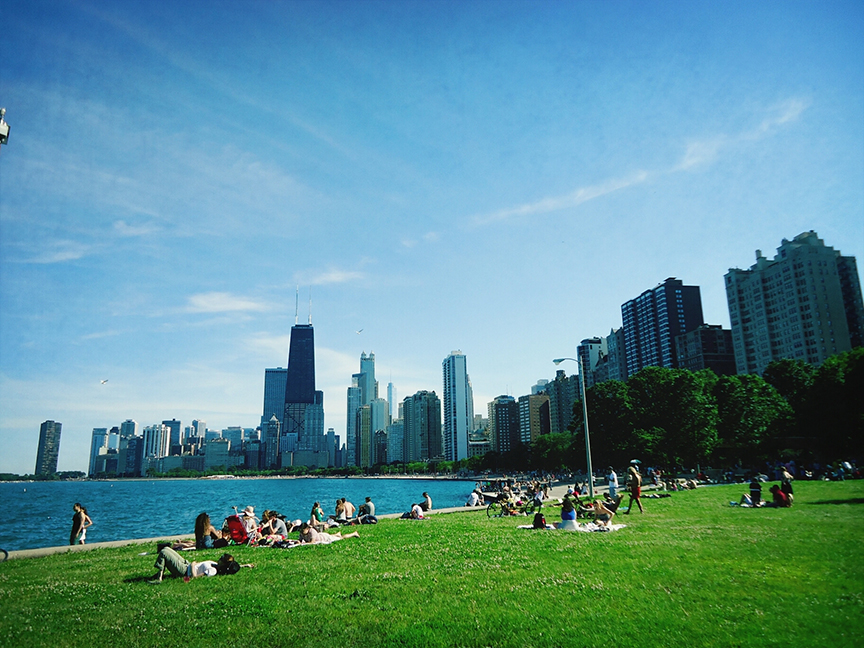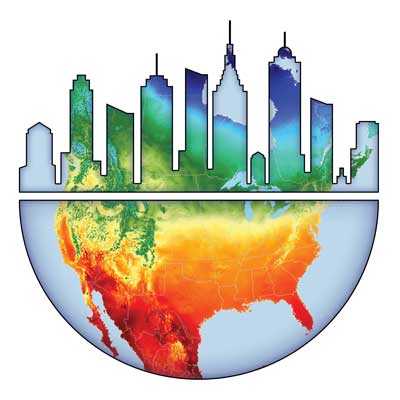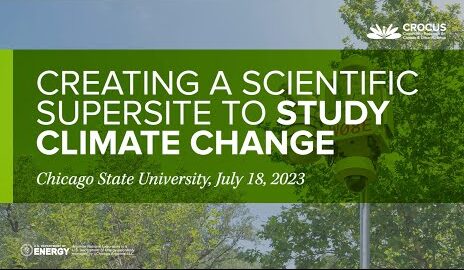Community Research on Climate and Urban Science Urban Integrated Field Laboratory
Cristina Negri, Argonne National Laboratory (Lead PI)
Participating Institutions:
- Argonne National Laboratory
- Chicago State University
- City Colleges of Chicago
- North Carolina A&T State University
- Northeastern Illinois University
- Northwestern University
- University of Chicago
- University of Illinois-Chicago
- University of Illinois–Urbana-Champaign
- University of Notre Dame
- University of Texas–Austin
- University of Wisconsin–Madison
- Washington University at St. Louis
- CIEMAT, Research Centre for Energy, Environment and Technology, Madrid, Spain
The Community Research on Climate and Urban Science (CROCUS) UIFL is a community-driven scientific effort to understand the interactions between cities and climate. The large CROCUS team, led by Argonne National Laboratory and including an inclusive set of scientific, educational, and community organizations, will advance urban science in the highly diverse Chicago region as a playbook that can be used by other major cities.
CROCUS will leverage existing, extensive observational and modeling capabilities and will empower and actively involve diverse communities as part of the research team to enable just, long-term societal benefits from climate mitigation and adaptation, such as reducing emissions and adapting neighborhoods to address future effects of climate change. Through the planned research activities, CROCUS will provide extensive educational opportunities to students from Minority Serving Institutions and Historically Black Colleges and Universities, as well as chart the path to novel climate-focused careers.
The Chicago region, reclaimed from a swamp and nestled between the understudied, but critically important, Lake Michigan and former prairie land now converted to agriculture, presents formidable opportunities for novel science. CROCUS will enact a network of observations and modeling efforts to unravel the effects of local and regional climate processes on communities, and conversely to understand how urban systems affect their regional climate. Working with community leaders and addressing community-driven objectives, CROCUS will develop tools for future urban science, include the needs of diverse, understudied communities, and inform key objectives of major regional climate planning documents.
Examples of CROCUS activities include:
- the development of new ways to sense, monitor and process environmental conditions to be used by models
- the advancement of the state-of-the art in representing urban systems in Earth System/climate models (ESMs), and linking ESMs with decision science models
- extend the benefits of the science outcomes to communities to identify and deploy equitable climate solutions and understand their system-wide impacts
- define specific problems and research gaps related to the Chicago region
- provide tools and methods for measuring the impacts of the clean energy transition has on climate and community livelihood and inform the tradeoffs and outcomes that are most responsive to community needs.

Chicago Lakefront. The Chicago region, reclaimed from a swamp and nestled between Lake Michigan and former prairie land now converted to agriculture, presents formidable opportunities for novel science.
CROCUS’s modular, portable, and scalable approach to integrate modeling with experimentation and observations will connect amicably with other UIFLs to coproduce knowledge and advance fundamental and community urban climate science. The outcomes of CROCUS will leapfrog scalability from local to global climate models, deliver best practices for public-private-industry-community partnerships, and revolutionize how America addresses urban sustainability with distributed and equitable urban solutions.
The CROCUS team includes Argonne National Laboratory, academic institutions (Chicago State University, City Colleges of Chicago, North Carolina A&T State University, Northeastern Illinois University, Northwestern University, University of Chicago, University of Illinois at Chicago, University of Illinois Urbana-Champaign, University of Notre Dame, University of Wisconsin-Madison, University of Texas-Austin, and Washington University-St. Louis) and community organizations (Blacks in Green, Greater Chatham Initiative, Puerto Rican Agenda, and the Metropolitan Mayors Caucus).
Creating a Scientific Supersite to Study Climate Change
On July 18, 2023, the CROCUS team installed sensors and equipment at Chicago State University to measure air quality, weather conditions, rainfall, and soil conditions.
Climate Learning in Action: CROCUS Interns Reflect on Summer Experiences
University students from across the country who participated in 2023 CROCUS internships presented posters, shared lessons learned, and heard advice from CROCUS leaders.
Climate Change: The Story of Chatham
Nedra Sims Fears, Executive Director of Greater Chatham Initiative, tells the story of flooding in the Chatham community.





